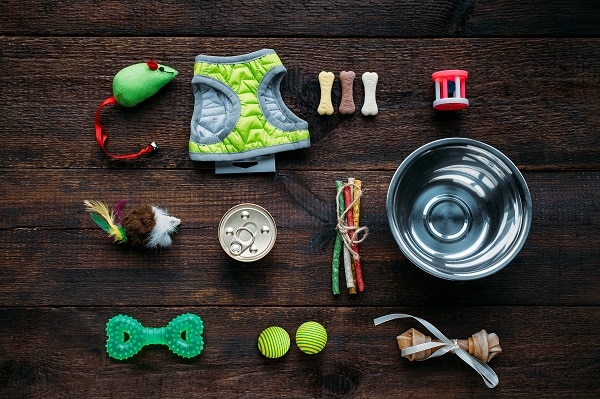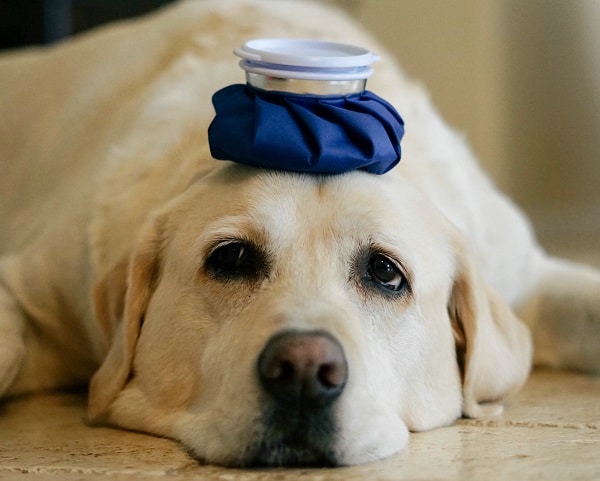As devoted pet parents, you strive to keep your furry friends happy and healthy; however, it’s possible that there are some household items that are potential hazards lurking in your home without your knowledge. Certain items can be surprisingly harmful, and ingestion of these items could lead to discomfort, sickness, or even cause your dog to vomit. This post aims to shed light on these potential dangers. The purpose is not to alarm but to inform and arm dog owners with the knowledge needed to keep their pets safe from harm.
The Basics Of Canine Digestion

Understanding how a dog’s digestive system works can provide some insight into why certain household items can cause discomfort and vomiting. Dogs have a shorter digestive tract than humans, so they process food more quickly. While this allows them to eat a lot of meat and other proteins, it also means they can’t break down some types of food and non-food items as effectively. Depending on what they’ve ingested, this can lead to irritation, blockages, or even poisoning.
Though canines have evolved alongside humans, their bodies still aren’t designed to handle everything that humans can consume or use. Many items that are perfectly safe and even healthy for people can be harmful or deadly to dogs. This is why it’s so crucial to be mindful of what your dog has access to and to understand the potential hazards certain household items can pose.
Toxic Foods For Dogs

One common source of potential harm for dogs in most households is food. Certain foods that humans enjoy can cause serious health issues for dogs. Items such as chocolate, grapes, raisins, onions, garlic, and some artificial sweeteners (like xylitol) can lead to symptoms ranging from gastrointestinal upset to severe poisoning in dogs. While many dog owners are aware that chocolate is toxic to dogs, they may not know that even small amounts can be harmful.
Chocolate contains theobromine, a stimulant that dogs can’t metabolize effectively. Depending on the type and amount of chocolate consumed, ingestion can lead to vomiting, diarrhea, rapid breathing, and even seizures. Similarly, grapes and raisins are known to cause acute kidney failure in dogs, but the exact toxic substance in these fruits remains unknown. Being mindful of these food items and keeping them out of your dog’s reach is essential for their well-being.
Dangerous Household Plants

Plants can add beauty and freshness to your home, but some of them can be a hidden danger for your dog. Certain household plants, including lilies, azaleas, and sago palms, are toxic to dogs and can cause symptoms such as vomiting, diarrhea, and other severe health issues. Lilies, for instance, are highly toxic to dogs and can cause severe kidney damage. Even small amounts of any part of the plant, including pollen, can cause vomiting, lethargy, and loss of appetite.
Similarly, azaleas, which are common in many gardens, contain toxins that can cause drooling, vomiting, diarrhea, and in severe cases, can lead to a drop in blood pressure, coma, and even death. As a dog owner, knowing which plants are safe for dogs and keeping the dangerous ones out of their reach is crucial.
Human Medicines And Supplements

A common but potentially deadly source of dog poisoning comes from human medications and supplements. Dogs are often attracted to the smell or taste of medications, especially flavored vitamins or gummies, and may ingest them if given the opportunity. Some of the most common culprits include over-the-counter drugs like ibuprofen and prescription medications such as antidepressants.
Ibuprofen, for example, can cause stomach ulcers, kidney failure, and even seizures in dogs. Antidepressants can trigger a range of symptoms, from vomiting to seizures, and in high doses, they can be life-threatening. While it’s easy to think that your medication cabinet is out of your dog’s reach, remember that dogs can be very persistent when curious about something. Always keep medications and supplements securely stored away, and never administer human medication to your dog without consulting your vet first.
Household Cleaners And Chemicals

The cleaning products you use to keep your home sparkling can, unfortunately, pose a significant risk to your dog. Many cleaning agents contain chemicals that are harmful to dogs if ingested, including bleach, detergents, disinfectants, and more. These substances can cause a variety of symptoms, ranging from vomiting and diarrhea to chemical burns and respiratory distress.
Bleach, for example, is a common household cleaner that can be toxic to dogs. It can cause vomiting, excessive drooling, and abdominal discomfort. Detergents and fabric softeners can cause similar symptoms and may also lead to burns in the mouth and esophagus if ingested. Always ensure these products are stored securely and out of reach of your pets, and make sure to keep your dogs away from areas where these chemicals have been recently used until they are completely dry and aired out.
Personal Care Items

Personal care items, such as soaps, lotions, and makeup, can also pose a threat to dogs if ingested. Many of these items contain chemicals and substances that are not meant for internal use and can result in vomiting if eaten by dogs. For example, certain soaps may contain detergents that, while effective for cleaning your skin, are toxic if ingested by your canine friends.
Cosmetics, too, can pose a risk to your dog’s health. Some makeup products contain heavy metals such as lead or zinc, which can cause poisoning if consumed by dogs. Symptoms of heavy metal poisoning can include vomiting, diarrhea, and in severe cases, neurological issues like seizures. It’s best to keep all personal care items securely stored away from dogs and supervise them closely in areas where they are used or stored.
Small Objects And Toys

Dogs, especially young ones, are often curious and love to chew on things. Unfortunately, this means they might end up ingesting small objects or parts of toys that can cause them to vomit or even result in a blockage. This includes everything from coins and buttons to small plastic toys and pieces of rubber. For instance, if a dog ingests a small plastic toy, it could get stuck in their digestive tract, leading to discomfort, vomiting, and potentially serious health issues.
It’s important to supervise your dog when they’re playing with toys and to ensure that any small objects are kept well out of their reach. Also, consider investing in dog-friendly toys that are large enough not to be swallowed and are designed to withstand heavy chewing.
Pest Control Products

Pest control products like rat poison, insecticides, and even certain types of mulch can be highly toxic to dogs. These substances are designed to kill pests, but they can also be harmful or even deadly to pets who come into contact with them. The symptoms can vary widely based on the substance and the amount ingested, but they often include vomiting.
For example, rat poison works by preventing the blood from clotting, causing internal bleeding. If a dog ingests rat poison, symptoms can take a few days to appear and might include weakness, coughing, and vomiting. Insecticides can affect the nervous system and can cause symptoms like drooling, shaking, and vomiting. Always keep these products out of the reach of pets, and consider using pet-friendly alternatives when possible.
What To Do If Your Dog Vomits

If your dog vomits, it’s essential to act quickly and appropriately. First, try to identify if your dog could have ingested any of the harmful substances discussed earlier. If they have, or if your dog is showing other signs of distress like restlessness, diarrhea, or lethargy, seek immediate veterinary care.
While occasional vomiting may not be a cause for alarm, repeated vomiting is a sign that something is seriously wrong. In some minor cases, withholding food for a few hours (but not water) and then reintroducing a bland diet can help. However, it’s crucial to consult your vet before trying any home remedies. They can guide you on the best course of action based on your dog’s specific symptoms and health history.
Be Mindful Of The Household Items That Can Cause Your Dogs To Vomit!
Throughout this post, you’ve learned about some of the various household items that can cause your dog to vomit, from certain types of food and plants to medications and pest control products. As a responsible pet owner, it’s your duty to keep your beloved dogs safe from these potential hazards. The knowledge shared in this post is not meant to cause alarm but to increase awareness and encourage action to prevent harm to our pets. So continue to strive for a safe and healthy environment for your dogs, ensuring they live the happy, comfortable lives they deserve.